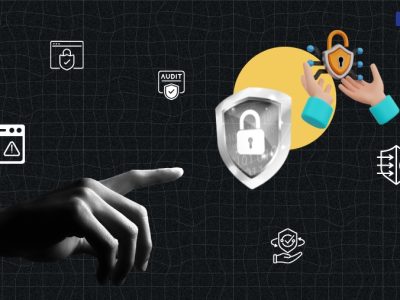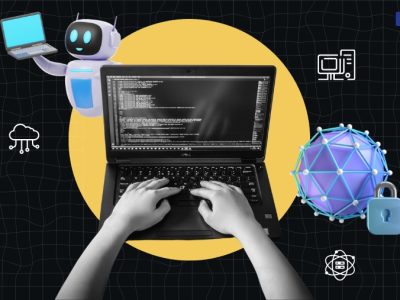Cyber Security vs Software Engineering: Who Wins 1O1?

There are different ways in which you could be employed. If you have learned a skill with intensity and dexterity, getting into an organization and earning your bread and butter with respect and dignity should not be a problem today
For instance, if you are tech-oriented and have skills in coding and programming languages, you can opt for cybersecurity and software engineering-based jobs.
Both of them are quite competitive. Moreover, they provide you with an opportunity to earn handsomely.
There are many who think Cybersecurity and software engineering have no distinctions.
Cybersecurity and software engineering are two completely distinctive fields, but they have close ties.
Cybersecurity focuses on safeguarding digital assets and data. Software engineering aims to create functional software.
However, you can say one is creating, and the other is safeguarding.
There is high demand and scope in both trends. Most importantly, you have high-earning prospects for both.
Cyber security vs. software engineering is a topic many are researching to opt for one of them as their future career.
Are YOU one of them?
You are in the right direction and in the right place. We will draw a comparison article that can help you select the right stream for the future.
What is Cybersecurity?

The first point in the comparison, cyber security vs software engineering, must be the definition.
Cybersecurity is the process of safeguarding computers and software from malicious attacks.
Moreover, it is an important task because it involves protecting everything, including data and the programs we use.
Also, Cybersecurity makes use of different methods to attain its objective.
However, according to a study by Forbes, around 343,338,964 victims came under the periphery of cyber attacks. If compared to 2021 figures, it is a massive 72% increase in numbers.
In addition, during the past 12 months, 34.5% of executives reported that their organizations have been targeted by cyber goons.
What is Software Engineering?

Software engineering is a systematic process of developing a software application and a system that can help meet the requirements of the users.
It encompasses software development and programming methodologies that aim to produce functional software products.
The particular role involves coding, debugging, and maintaining software. The professionals in this field must attain deeper knowledge and understanding of programming language and system architecture.
Cyber security vs Software Engineering: Specific Roles

You might have heard of cyber security testing. It is one of the key responsibilities of cybersecurity experts. Yes, you got it right.
We will learn about the roles and responsibilities of cybersecurity experts as well as computer science professionals.
There are diverse roles you may play in organizations if you are a cybersecurity expert. It includes:
- A security manager
- IT Security Specialist.
- Security Engineer.
- Security Consultant.
- Security Administrator.
- Director Of Security.
- Information Security Analyst.
On the other hand, software engineers, too, have diverse roles to play. They include:
- DevOps Engineer
- Full Stack Developer
- Quality Engineer
- Backend Engineer
- Security Engineer
- Frontend Data Engineer.
Just like cybersecurity experts, the job role of the software engineer is also quite diverse, to say the least.
Key Components of Software Engineering And Cyber Security Jobs

Discussion of Cyber security vs software engineering minus key components will make the discussion null and void. We will start with Cybersecurity first.
Firewall and intrusion Detection System
It’s about monitoring tools, deploying barriers, and thwarting malicious activities.
Encryption
Encryption is all about utilizing cryptographic techniques so that it can secure data transmission and storage.
Vulnerability Assessment
Identifying the potential weaknesses in the hardware and software. It is one of the major responsibilities in cyber security auditing.
Security Awareness
Educating the employees of the organization about safe and secure online practices so that they can ward off cyber attacks.
Incident Response
Developing plans and procedures to mitigate the impact of security breaches.
Now, let’s discuss the key aspects of software engineering.
Now let’s mention some of the key elements of software engineering jobs. They include:
Testing
The software engineers conduct thorough testing to identify and fix the bugs thereafter.
Coding
Coding is all about writing the actual source code, which implements the functionality of the software.
Configuration Management
Configuration management is all about managing the change to the software. It includes documentation and erosion control.
Requirements
Procuring and, thereafter, analyzing the user’s needs to define software specifications.
You might have heard about third parties that manage cyber security on behalf of an organization.
Yes, cyber security business professionals and the in-house team within the organizations touch the aforementioned elements that form a part of the everyday routine.
Even software engineers are always in high demand for the multi-directed responsibilities they take.
They do it by having good programming skills and very strong communication skills. Yes, they ensure that the software is updated with the latest features. In a way, their input plays a great role in the development of an organization.
Key Skills to Learn

One of the key searches on cyber security jobs is What is smishing in cyber security? It is nothing but SMS phishing.
We brought it into this section of our discussion to understand the new challenges that these professionals need to face.
However, to tackle these new impediments, they need skills. We are going to make a comparative study of the skills and competencies that these experts need to attain. This is one of the integral parts of the study of cybersecurity vs software engineering.
1. Networking And System Engineering
Cybersecurity professionals need to have an in-depth understanding of networking to start a career. It will help them understand the technical aspects of data transmission.
2. Knowledge Of Operating Systems And Virtual Machines
Cybersecurity professionals must have a strong knowledge of operating systems like Windows, Linux, and Mac OS.
Another system worth mentioning is the Kali Linux. It is the most widely known distribution system for ethical hacking and penetration testing. It comes with several hundreds of tools related to penetration testing.
3. Network Security Control
Network Security controls refer to the diverse measures employed to ensure the security of the network.
A professional must have an in-depth knowledge and idea of how a network works. A firewall blocks the incoming traffic from the internet to your computer.
Being an expert cybersecurity professional, you must make the best use of a firewall to filter and prevent the most unauthorized traffic on the network.
4. Coding
Cybersecurity testing and coding are also important skills that professionals have to learn and master. First, let’s come to coding languages. Cybersecurity professionals need to be proficient in C and C++.
They are low-level programming languages, but they are a must-know for operating in this realm.
Python is a high-level programming language that has evolved quickly over the years. It helps you pinpoint and probably fix the vulnerabilities.
Apart from these, professionals also have to master several other core programming languages, which include HTML, JavaScript, PHP, Go lang, SQL, and others.
All these are necessary for cyber security monitoring and other functions.
Apart from these skills, some other skills that we must include in our discussion include
The Internet of Things, Artificial Intelligence (AI), Blockchain security, Cloud security, and others.
Key Software Developer Skills

Now, let us bring in the Key Software Developer Skills Here.
1. Programming Language
Just like cybersecurity experts, software engineers, too, need to learn diverse programming languages.
Of course, the employer will not ask you to be proficient in all the coding languages. It’s difficult, but knowing the fundamentals is highly important in all aspects.
Some of the most common coding languages that you must learn include Python, C#, Cascading style sheets, Java, PHP, and Hypertext Markup Language (HTML).
2. Proficiency In Databases
It is one of the most essential skills for software engineers to develop. Developers use the database to hunt for new information and thereafter update the existing information.
They also have the knowledge to secure databases and thereafter perform company backup during the most crucial circumstances. Some of the most crucial databases include Redis, MongoDB, SQL, Cassandra, IMB Db2, and others.
3. Cloud Computing
Some companies prefer software engineers to know cloud computing skills. It helps improve security.
At the same time, it helps save time and bring down storage size.
They also take the responsibility of configuring the platform for which they need proficiency in coding language. As many companies bank on cloud technology, it may be beneficial to learn about the applications that use cloud-based technology.
4. Data Structure And Algorithms
Data structure mainly refers to the methods organizations use to store information in a database. Proficiency in both is a dire need for optimizing information in a program’s code.
5. Software Frameworks
Software frameworks are actually the platforms that a developer uses to create software applications.
A software framework aims to ease the development and thereafter prevent them from creating applications right from the beginning.
There is often a framework that includes the code of libraries and other programs in the development process. They include:
- Cocoa Touch For iOS.
- Net and Active X for Windows.
- Android application framework for Android.
Apart from these, software engineers need to master skills like debugging, the ability to use text editors, integrated development environment, encryption, spreadsheets, object-oriented design, and cross-platform software.
Salary Comparison Between Cyber Security And Software Engineering
Entry-level cybersecurity jobs typically start at around $70,000 annually. The professionals gain a salary with experience. Positions like CISSP earnings upward earn a salary of $120000 or more.
Even the roles with high demand, like ethical hacking or information security managers, can command high salaries.
However, for software engineers, entry-level jobs earn between $75000 and $100000 annually.
Senior software developers can earn well over $1300000 annually, with the top positions like lead developers and other specialized engineer posts getting high pay scales.
Read More:
























